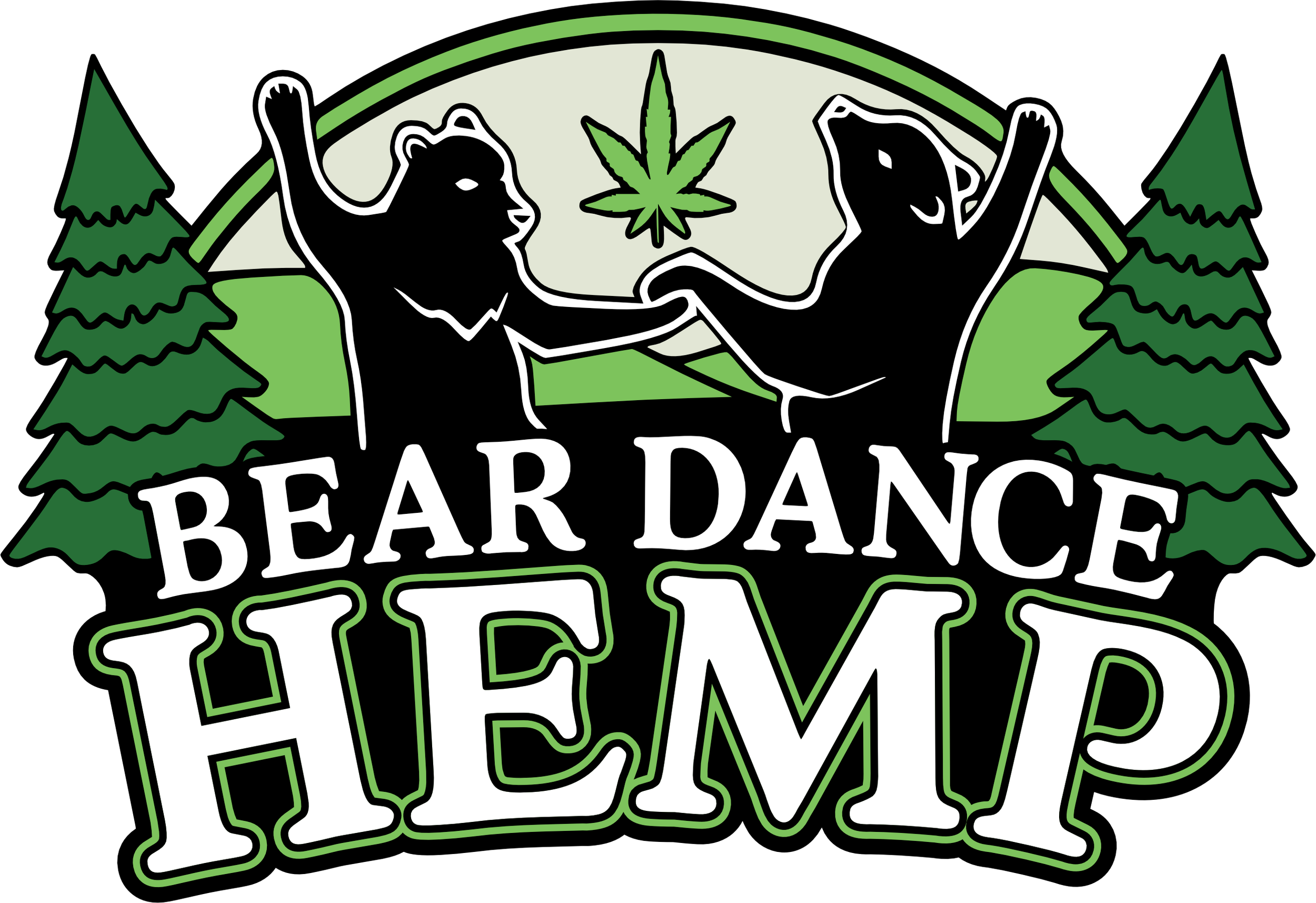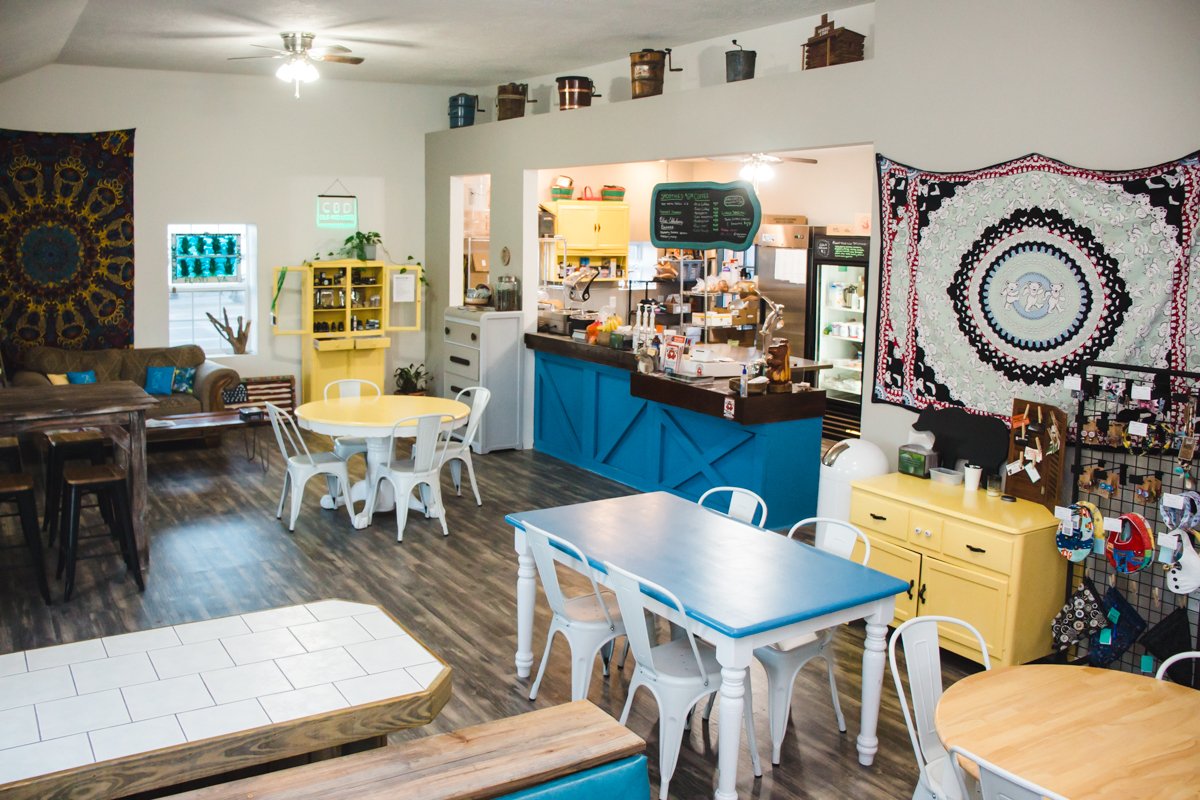NRV NEWS: Providing Pain Relief Without Opioids: A Christiansburg Couples Crusade
Take a deep dive into the Virginia hemp industry and get to know two of the businesses most adamant advocates
Evan Bury
April 27, 2023
Feature Story, NRV News
https://nrvnews.com/pain-relief-without-opioids-a-local-couples-crusade/
CHRISTIANSBURG, Va. – Chris Reese and Sarah Vogl have dedicated the last four years of their lives to providing hemp-derived CBD and THC products to the New River Valley.
“I am an advocate for cannabis for many reasons,” Reese said. “One of the most important reasons in the past few years has definitely been cancer. I lost my mom to cancer just a little over a year ago.”
Reese and Vogl own a cannabis cafe in Christiansburg called Bear Dance Market & CBD Cafe, “a quaint smoothie cafe and cannabis store with a focus on product education,” according to their website.
Customer reviews of Bear Dance Market on Google are overwhelmingly positive. The cafe has a 4.9 star rating out of 75 reviews.
“I can't say enough good about Bear Dance,” said Katie Szymanski on the Bear Dance Markets website. “The smoothies and drinks are fresh and delicious, the products are local and high quality, and the owners are so friendly, knowledgeable, and do an amazing job gently educating customers! There are also a ton of vegan and vegetarian options available which is so nice to see. I learn something new every time I visit and I love supporting local!”
Bear Dance Market provides local cannabis edibles and extracts, CBD flowers, and seasonal produce like jam and honey. The market also serves local Blacksburg bagels, Red Rooster Coffee, grilled cheese sandwiches, and homemade lemonade. The eclectic design of the cafe combines the woodsy feel of an Appalachian lodge and the interior aesthetic of a modern smoothie bar with a sprinkle of down to earth hippie-esque vibes of peace and harmony.
“We focus on Virginia made products specifically,” Reese said. “We started off with just CBD and started to transition into other cannabinoids such as delta-8 THC. We also sell hemp derived delta-9 products. We tend to have people using them more therapeutically or medically than recreationally. I'd also like to point out that within the four years that we've been doing this we've been able to pay off all our loans, stay in the green, acquire a large organic customer base and get recommendations from medical doctors. I can't really disclose any of those because they're not technically allowed to do that, but we do have medical professionals that recommend coming here.”
Reese and Vogl believe that there is a serious lack of education offered through the Virginia medical cannabis program and at Virginia dispensaries. The couple believes the expertise they have acquired over the past four years of owning and operating a cannabis cafe – coupled with artificially high prices at Virginia dispensaries – earned the Bear Dance Market its credibility with licensed doctors.
“We've gotten the green light from quite a few doctors on our products and it's unfortunate because we do have patients [or customers] with terminal illnesses that depend on these products for day-to-day comfort,” said Reese. “After July 1 they're going to have a hard time accessing these products because they will not have the money it takes to buy these products from a dispensary.”
The July 1 deadline Reese is referring to is Virginia State Senate Bill 903. The bill passed on April 12 and limits the amount of THC (the psychoactive component of cannabis) that can be included in a hemp product or industrial hemp extract to 0.3 percent and two milligrams per package.
“The amendments approved by the Senate made it so that any CBD product has to have a 25 to 1 CBD-THC ratio,” said Reese. “That makes 85 to 90 percent of our products illegal starting on July 1. Ninety percent of the industry is going to be pretty much wiped out because people are going to have to reformulate all of their products in order to hit those standards which are now far below that of the national standard.”
The national standard was set by the 2018 Farm Bill which legalizes industrial hemp that has a tetrahydrocannabinol (THC) concentration of no more than 0.3% by removing it from Schedule I of the Controlled Substances Act.
“We might see something change with the 2023 Farm Bill because the Farm Bill has to be renewed every five years but probably nothing will save the Virginia hemp industry,” said Reese.
In the 2021 Medical Cannabis Access State Report Card by Americans for Safe Access, Virginia received an overall score of a D+. Virginia’s worst ranking was in the access to medicine category in which the state scored a 25/100.
“[Cannabis products are] grossly overpriced at the dispensary, probably at least two to three times if not four times what we price our products,” said Reese, “and it genuinely makes me sad – more so for my customers than myself – because I know I'm going to be fine. I've never failed in any business I've been a part of. The only thing that's going to make this business fail – if it does – is the government and their regulations and overreach within the hemp industry. I know that I'll be able to transition into something else and be successful, but I don't know what my customers will do in order to maintain their health and happiness.”
Although the short-term future of the hemp industry in Virginia is bleak, legalization of recreational cannabis across the country means business is booming on the national stage. As of April 2023, 22 U.S states have approved legalization of recreational cannabis of which the most recent additions are Maryland, Missouri, and Delaware according to the U.S News and World Report. Retail sales of recreational cannabis in these states are set to begin on July 1 in Maryland and have already begun in Missouri. Delaware has yet to establish an official start date after approving legalization in April.
In some states like Colorado recreational cannabis has been legal for over a decade. First receiving legal status in 2012, Colorado has become a national role model for legalization.
“Colorado's model for regulating legal cannabis — despite early pitfalls — is what's now used by most states across the country. The anniversary [of legalization] is being hailed by Gov. Jared Polis as ‘a milestone for Colorado, the country, and the world,’” according to Axios Denver.
Cannabis Cafes similar to Reese and Vogl’s Bear Dance Market were also legalized in 2019 by the Colorado legislature. This means Coloradans have access to public spaces where consumption of recreational cannabis is legal. In Denver The Coffee Joint sells freshly brewed coffee and cannabis products for consumption on site and JAD’s Mile High Smoke offers non-alcoholic THC-infused beer for consumption in a social bar-like atmosphere. More recently Maryland’s first Cannabis Lounge Ceylon House had their grand opening in March, providing a social atmosphere where patrons can BYOW (bring your own weed), relax, and socialize in a public space.
Similar to the legal cannabis industry in states across the nation, Reese and Vogl have opened up a hemp-derived social lounge in Christiansburg similar to Maryland’s Ceylon House.
The Happy Skunk provides cannabis education and socialization in a space infused with the earthy feel of the Blue Ridge Mountains and decked out with the relaxing accommodations of family movie night at home.
“I wanted it to feel just like in the store,” Vogl said. “Things are not overly commercial, it feels very homey, and its got nice high ceilings with a couple unique little characteristics that make it flashy.”
The Bear Dance Market and CBD Cafe and The Happy Skunk have provided an alternative for locals who can’t afford the costs of obtaining a medical card and buying medical cannabis.
“Dispensaries rip people off and we have tons of customers that have terminal illnesses,” Reese said. “I've lost customers that had cancer that got products from us for quite some time and when you see that with your own eyes and if you have any kind of empathy you bring that home with you and that's why I'm so mad at our government.
“A lot of these products have been bettering people's lives dramatically and what are they supposed to do when these products are no longer available to them? Many of them can't afford the dispensaries because of their predatory pricing and on top of that applying every year for the medical prescription license is another large cost of money.
“Without places like us to go to a lot of these people are probably going to become more reliant on their prescription drugs again. I anticipate a surge in opioid use which is already existent, but not only that I fully expect a very large rush of other drugs to be hitting the black market. If Virginia chooses to legislate away cannabis then there are certain people – not us – that will choose to sell other substances to make money because there are some people who all they knew before getting into this business was cannabis.”



